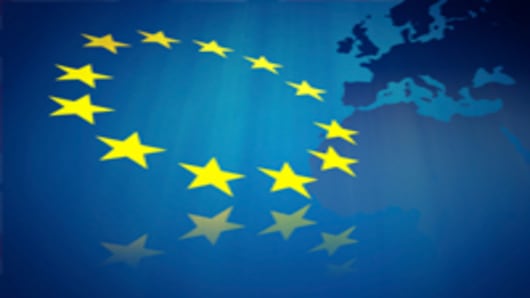European leaders meeting in Brussels on Thursday reinforced calls for Greece to push ahead with austerity measures in return for further financial aidand called on the country to stand united as opposition to the measures grows.
"Tonight was the moment to see where we stand as a union," European Council President Herman Van Rompuy told reporters late on Thursday. "There is a stronger sense of common responsibility," he said.
In a statement, EU leaders reiterated earlier remarks from the euro group, the 17 countries that share the European single currency, that Greece will have to press ahead with a privatization program.
"The euro area heads of state or government agree that required additional funding will be financed through both official and private sources," the statement said.
"The European Council calls on the national authorities to continue implementing with resolve the necessary adjustment efforts to put the country on a sustainable path," it added.
The leaders also called on Greece's political parties to support the required austerity measures and privatization measures.
Earlier, Reuters, citing unnamed sources, reported that an amended austerity plan had been approved in Athens by an inspection team from the International Monetary Fund and the European Union.
"A comprehensive reform package agreed upon with the commission, in liaison with the ECB, and the IMF, and adoption by the Greek parliament of the key laws on the fiscal strategy and privatization must be finalized as a matter of urgency in the coming days," the statement said.
Marietta Giannakou, a member of the Greek member of the European Parliament and a former Greek minister told CNBC.com she was confident the Greek parliament would vote in favor of the introduction of further austerity measures next week, but said that the government needed to try to reduce the cost of the public sector.
"In other countries there is a resistance to change, there are reactions (as well)... This is democratic and necessary," Giannakou, a member of Greek opposition leader Antonis Samaris' opposition conservative party, said.



